Today we visited Syracuse, on the east coast of Sicily. Syracuse is a city with a long history. In fact, it was founded in 734 BC by Greek colonisers. With half a million inhabitants at the time, it was the most powerful of Greece's colonies across the sea and a direct rival to Athens.
Innehållsförteckning
UNESCO World Heritage List
Syracuse was the home of the famous mathematician Archimedes in the 2nd century BC. There are some remains from the old days, including a Greek theatre from the 4th century BC. Incidentally, Syracuse was listed as a UNESCO World Heritage Site in 2005.
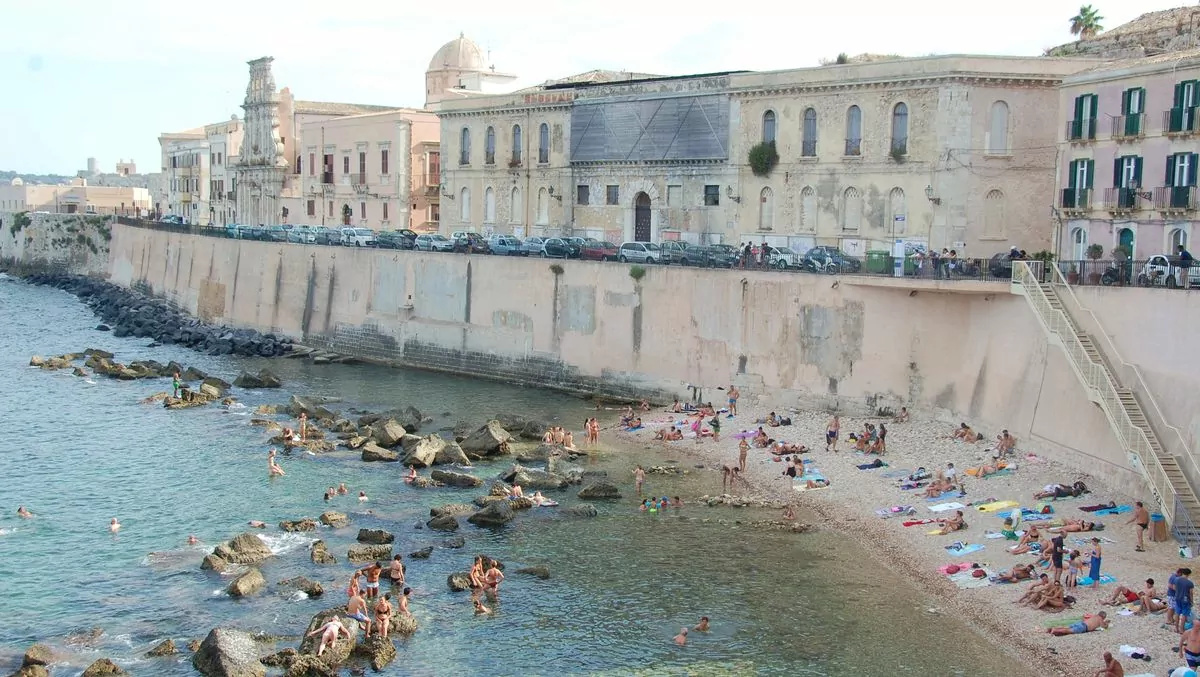
Ortigia in Syracuse
The original settlement of Syracuse was the island and harbour of Ortigia, which is connected to the mainland by a causeway. This is where we went today! We parked in a car park (von Platen) and took a bus from here. What we thought? Wow, we liked this town!
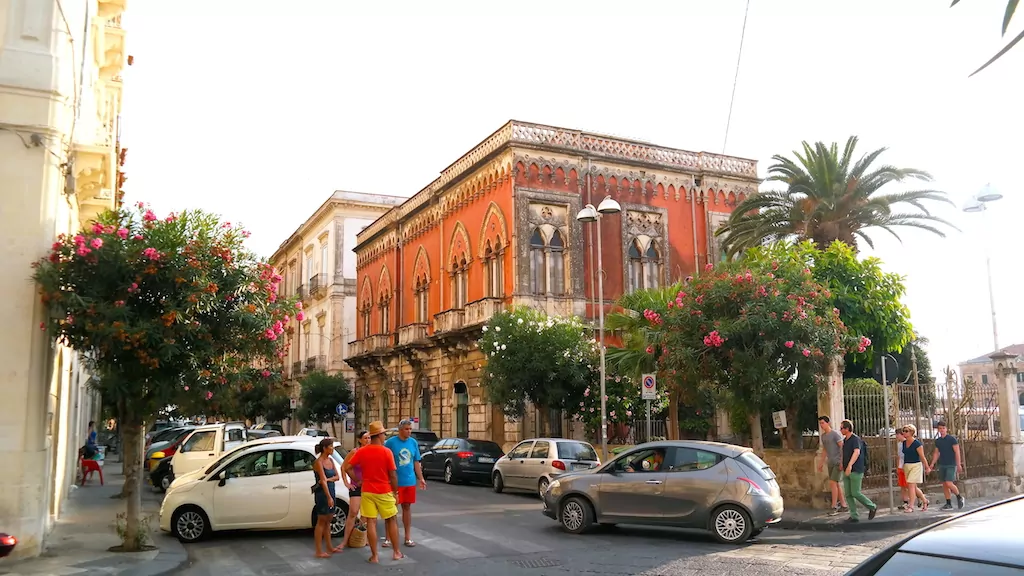
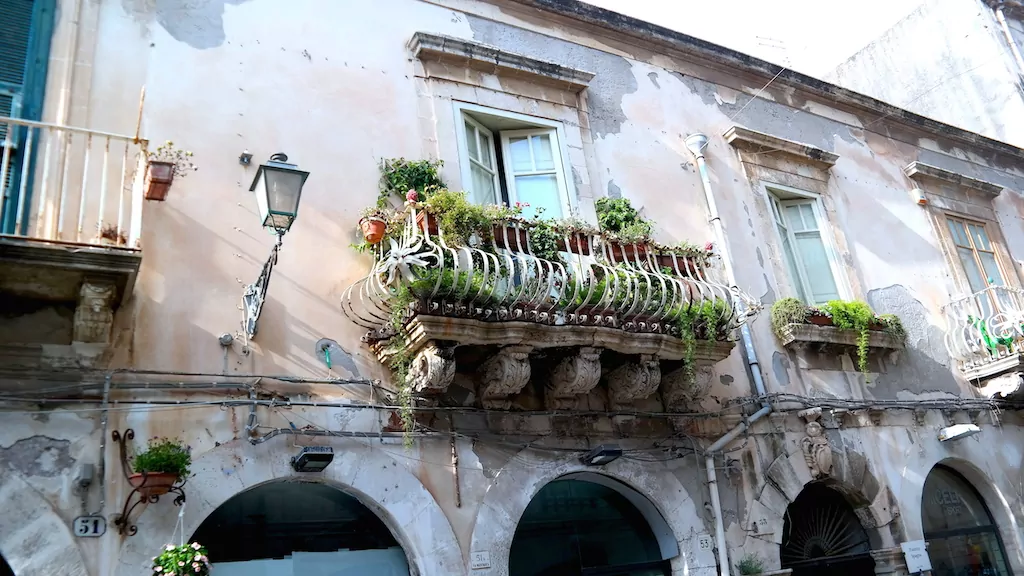
Syracuse - a wonderful city
In Syracuse there are beautiful houses from the 17th or 18th century (and a few older remains), nice views of the sea and a lot of small museums and exhibitions. We peeked into an exhibition about Da Vinci's machines and inventions - what a quirky character!
There's so much to see here, with beautiful alleyways that make your head spin. You walk around looking at balconies, architecture and picturesque cafés and after a while you don't know where you are. We understand that many people speak highly of Syracuse and we can vouch for this city.
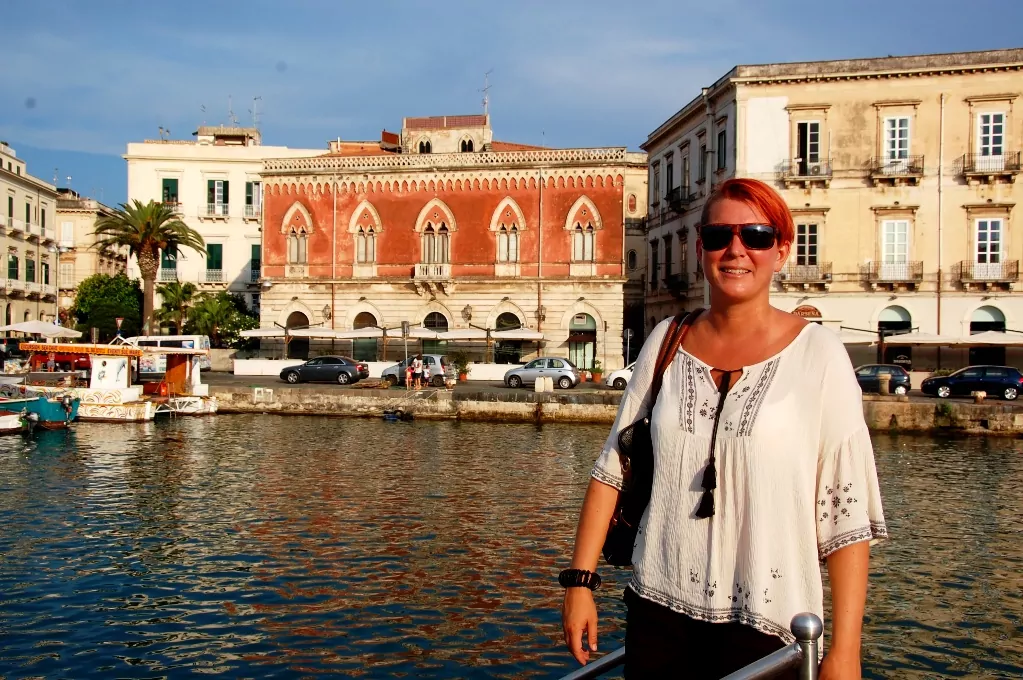
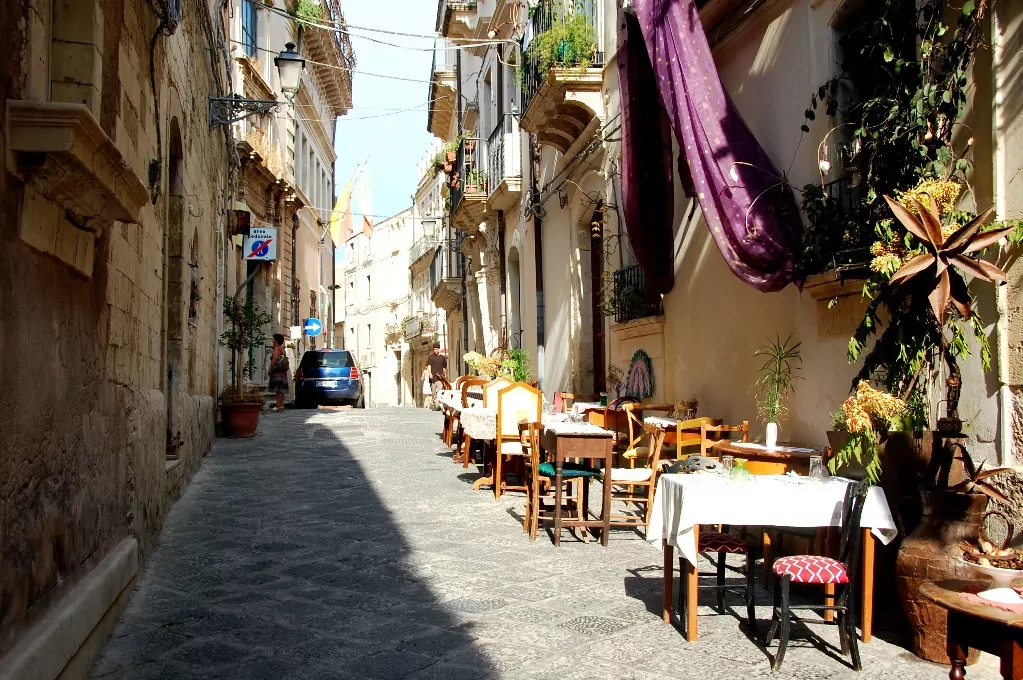
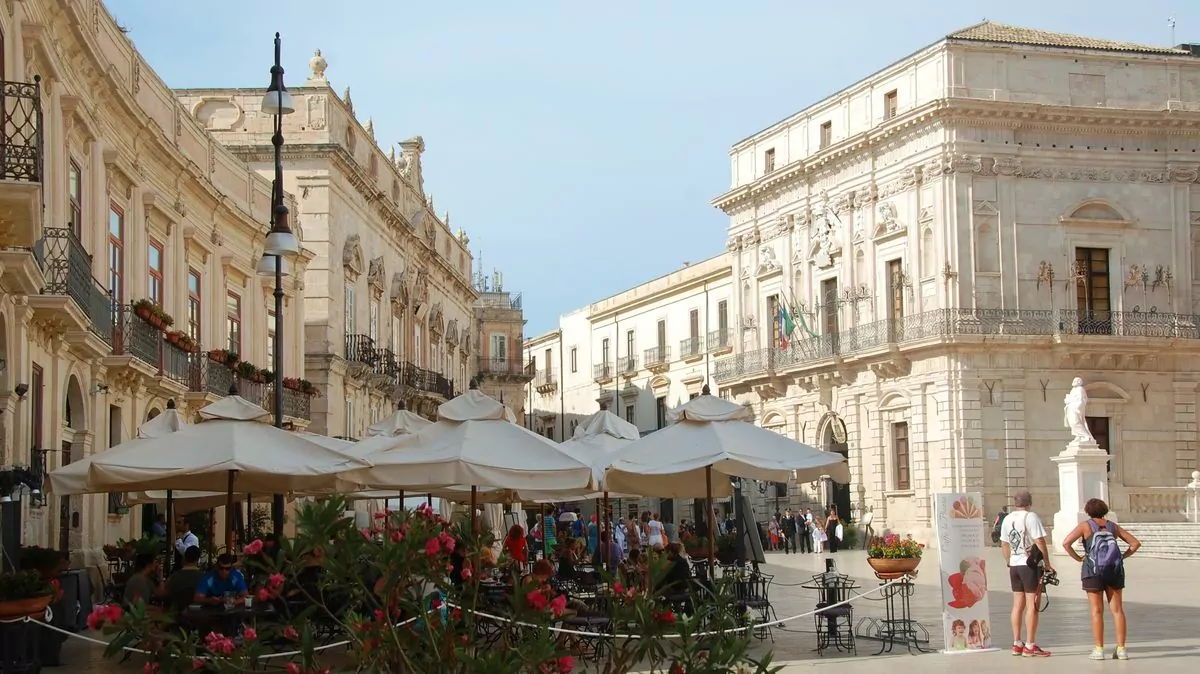
Syracuse and our Swedish Lucia
A special thing about Syracuse, for us Swedes, is of course the connections to the Swedish government. Lucia traditions. Stories about St Lucia vary, but it is known that she was born into a wealthy family in the 280s, was a Christian virgin and was martyred. According to several stories, she took a vow of chastity when she was young, and when her mother promised her to a rich nobleman, she did everything she could to postpone the wedding.
The mother later fell ill, but Lucia managed to cure her through her faith. To thank her daughter, the mother agreed to cancel the planned wedding, but the nobleman did not like this! Feeling cheated, he denounced Lucia for her Christian faith, putting her at risk of the death penalty.
Lucias was punished by living as a prostitute in a brothel for the rest of her life. She was to be taken to the brothel on a cart drawn by oxen, but the cart froze. They tried to burn Lucia at the stake, but the flames receded. It was only when a Roman soldier put a sword through her that her flame was extinguished.
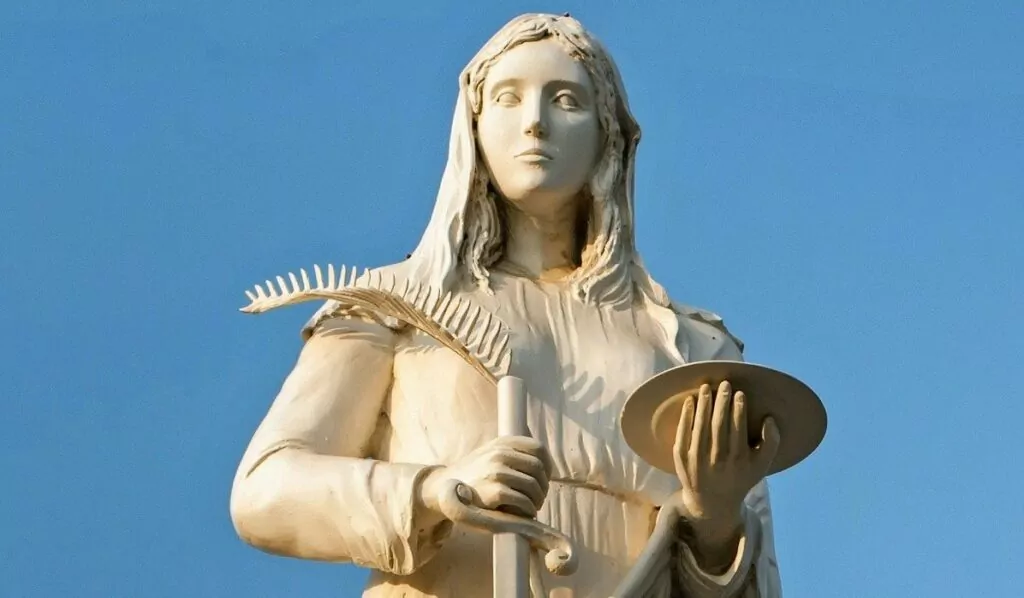
Travelling by local bus
The small local bus costs 50 cents per person and goes everywhere, including from the von Platen car park to the Old Town. When we went home, we were almost alone and the driver asked "Camper?". and then he drove past the stop so we only had ten metres to walk to our car ...

More to see and do in Sicily
There is of course much more to see and do around Sicily. Below you'll find lots of reports with travel tips.
Further around Sicily - location in western Sicily
Today we have continued to drive around Sicily, from Marsala on the west coast of Sicily and southwards along...
Motorhome parking in Pozzallo - Sicily in the summer heat
We have now found a pitch in Pozzallo, Sicily. High season and 35 degree heat is...
From Sicily to Calabria
Yesterday it was time to leave Sicily and roll into Calabria, the Italian region down...
Sardinia-Sicily ferry - night under the open sky
Last Saturday evening we took the ferry Sardinia - Sicily, from Cagliari on Sardinia to Palermo on...
Arriving in Sicily - welcome to Palermo!
Coming from Sardinia to Sicily was a bit of a shock. Palermo was quiet in the...
Sicily's backside - rubbish and neglected roads
When travelling by motorhome, you get to see a bit more than a charter tourist. You don't see...
Giardini Naxos - popular seaside resort in Sicily
Giardini Naxos, located right next to Taormina, is a popular seaside resort in Sicily. In fact,...
Taormina in Sicily - 10 beautiful attractions
Located on the eastern coast of Sicily, Taormina is by far the most beautiful and charming city we've seen in...
San Vito Lo Capo promontory - beautiful nature in Sicily
San Vito Lo Capo is located on a prominent promontory in western Sicily, just north of Trapani. Here...
The historic town of Noto in Sicily
Today we visited the Sicilian town of Noto. Noto is located south of Syracuse and is despite...
The beautiful city of Trapani on the west coast of Sicily
Today we went to Trapani on the west coast of Sicily, and our main goal was to buy internet sim cards,...
Marina di Ragusa - sun and swimming in Sicily
Now we have arrived at Marina di Ragusa, which is located on the coast not too far from...
Ancient temples in Agrigento, Sicily
Agrigento on the southern coast of Sicily is known for its ancient temples, dating back to the 4th century BC, in...
Mount Etna and the east coast of Sicily
Today we drove from Syracuse to Naxos Giardini, just south of Taormina. Now...
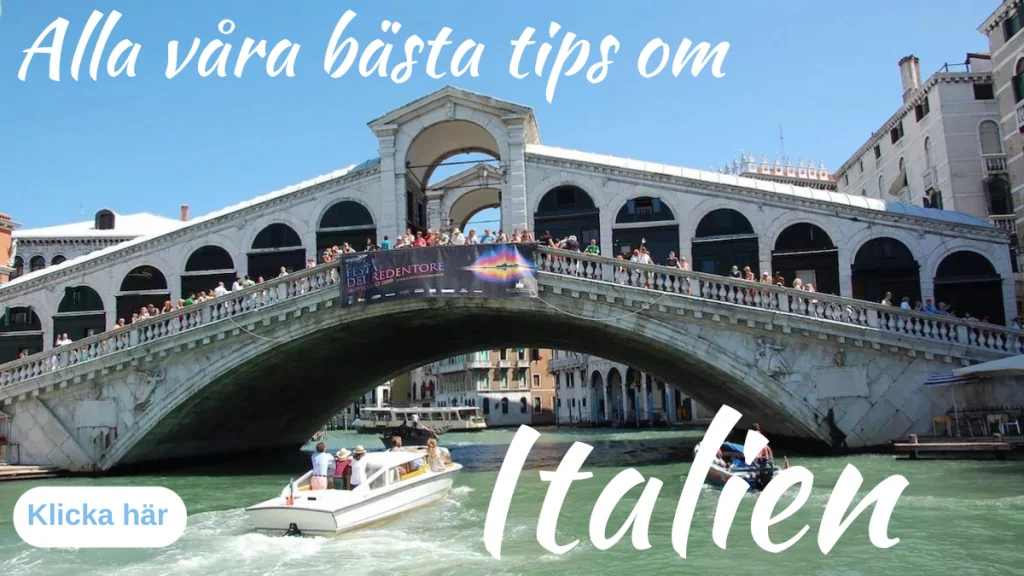
Have you been to Syracuse?
Have you been to Syracuse? What were your experiences? Do you have any tips?
Facts about Syracuse
- Country: Italy
- Region: Sicily
- Residents: Around 122 000 (2017)
- Protective patronage: Lucia
History of Syracuse
- Founding: The city of Syracuse was founded in 734 BC by Greek colonisers from Corinth and named Syracuse. The city was originally built on the island of Ortygia, which was later connected to the mainland.
- A maritime power: Under the ruler Gelon (485-478 BC), Syracuse became a naval power. Victories over the Carthaginians in 480 BC and the Etruscans in 474 BC made Syracuse powerful. Fortresses and the castle of Euryalos were built during this period.
- New era of greatness: When the mother city of Corinth sent Timoleon (343-337 BC) to Syracuse, he paved the way for a new era of greatness. Among other things, Timoleon put an end to an ongoing civil war.
- Rome conquers: In 212 BC, Syracuse was conquered by Rome during the Second Punic War. During the conquest, the inventor and mathematician Archimedes was killed. Syracuse became the administrative centre of the province of Sicily under Rome.
- After Christ: When the Arabs conquered Sicily in the 8th century, Palermo became more important and Syracuse less so. In 1038-40 Syracuse was held by the Byzantines and in 1085 it was conquered by the Normans.

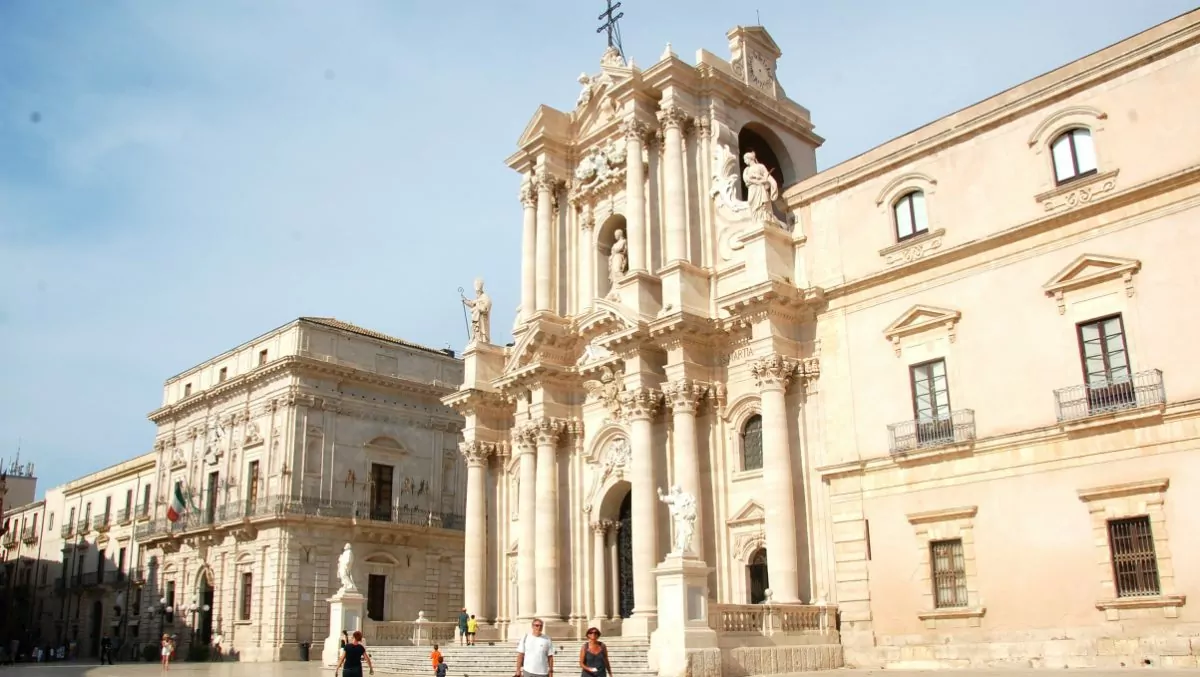








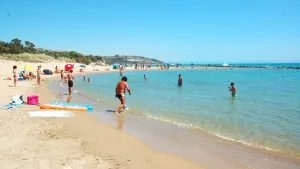

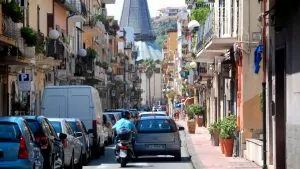
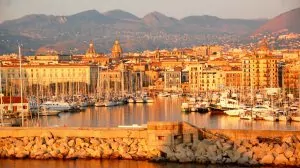
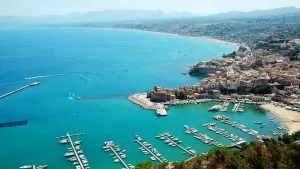
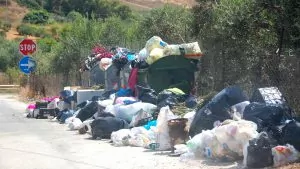
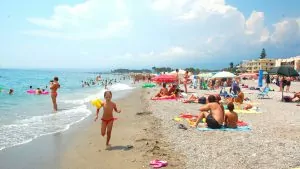
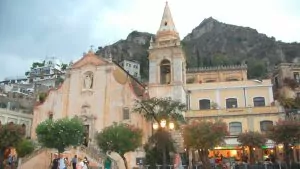
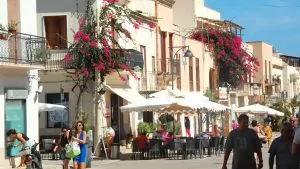
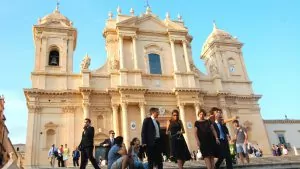
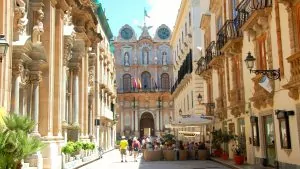
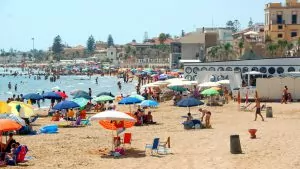
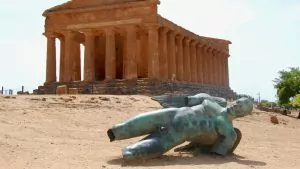

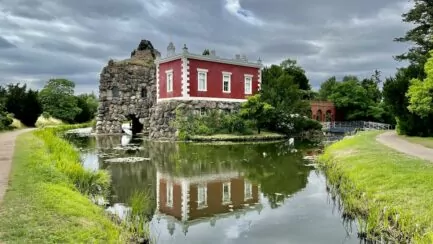
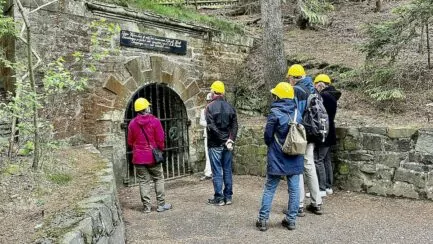
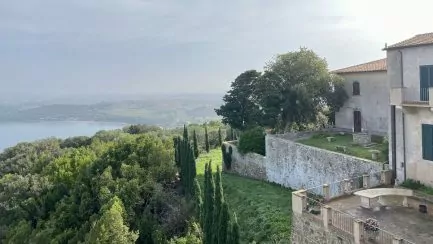
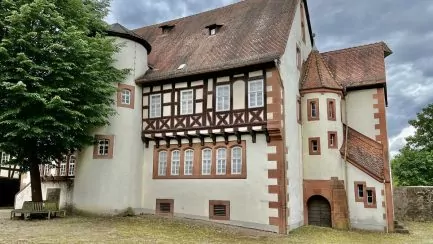
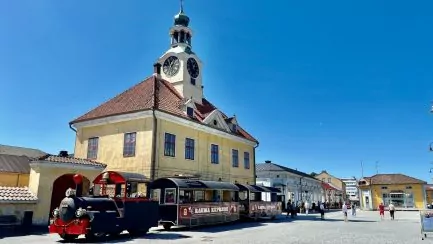



Ruth i Virginia says:
Did you see Santa Lucia anywhere? 🙂
Impressive duomo! What a nice city and what a nice bus driver!
You have met many helpful Italians in Sicily.
P.S. If you are going to Taormina, I suggest you take a bus.
Went there by bus, and the way up was really like that, that you would rather
didn't want to look. - We were staying in a hotel, where you signed up for
street level, and then you took the lift DOWN to the rooms. Great location!
06 August 2015 - 21:19
Ruth i Virginia says:
Off topic! With all your travelling - Wondering if you have been to Madagascar. Saw a
fascinating TV programme about the island last night.
06 August 2015 - 21:21
admin says:
Ruth in Virginia, well now I feel that I should have written about Lucia! She was born in 283 in Syracuse and died in 304 in Syracuse. At least we saw a street with her name! Thanks for the tips about Taormina! We have found a car park a bit away from there, and it will probably be a bus from there. Fascinating to hear about the hotel where you go DOWN to the rooms! Unfortunately, we have not been to Madagascar, but it sounds exciting!
06 August 2015 - 21:34
Steve says:
It's a special feeling to walk around like that in the middle of history.
06 August 2015 - 22:15
BP says:
Yes, everyone knows Syracuse - in name, that is. But you have the privilege to experience it irl. The pictures you show are very much liked, I can say.
Oh the first picture of Syracuse reminds me of Venice actually.
Fantastic with this bus service. The Sicilians must love "campers":-)
Q: On the BBC tonight they showed a report about all the migrants from Africa coming to Palermo. Have you seen any of it?
06 August 2015 - 23:03
BP says:
Answer: You didn't miss anything in Marabou Park. It was a mega disappointment. Five strange (to say the least) art tools on a lawn, the hideous sculpture I showed, another one with two bears, some "exotic plants" in a minimal area, and a boring restaurant. The 15 square metre art gallery even wanted entry to check out an artist I had never heard of.
No, you have much more fun in Syracuse:-)
06 August 2015 - 23:19
Maggan och Ingemar says:
We missed Syracuse, probably because we had our sights set on the Eden Car Park in Giardini Naxos. I would have liked to visit Syracusa, but you should have some left if you come to Sicily some more times. 🙂
Taormina and the small village of Castelmola are not to be missed. The safest way to get there is by bus. In Giardini Naxos there are three car parks / campsites / sites to choose from, Eden has a nice owner who likes Swedes 🙂 it was also cheap (at least in March). Check the bus tours properly. I liked this part of Sicily.
06 August 2015 - 23:39
admin says:
Steve, you can feel the history in places like this!
BP, ok then I don't have to mourn so much that we missed the Marabou Park! No, we have not seen any newly arrived migrants. However, we see a lot of Africans here in general!
Maggan and Ingemar, we are going to Giardini Naxos tomorrow. Thanks for suggesting a place to stay! We are actually set on another one (we are meeting a friend in Taormina and she mentioned which one she thought was best) but we will see. I will have to check out Castelmola! Thanks again!
07 August 2015 - 2:04
Lennart says:
You've heard of Syracuse!
Looks nice on the pictures!
Live well!
07 August 2015 - 6:08
JoY says:
Now I am happy that we "soon" will go to Sicily. Many exciting places and good info regarding campsites that you share.
PS Spaghetti Boulognese is also good not at all like our red meat sauce. Pasta with truffle as well and with parmesane hihi mm mm.
Hugs Yvonné
07 August 2015 - 8:51
admin says:
Lennart, yes, that's why it was fun to come here! Lucia also comes from here, which I forgot to write.
JoY, the nice cities are really one of the highlights here! I'll also add the pitches under "pitches" in the main menu, with some more info. Thanks for more food tips! I have probably never even eaten truffles.
07 August 2015 - 9:09
solan says:
Taormina, where I was on a charter holiday in the early 70s. It will be interesting to read about how you perceive the city today. Good that you put the sites in the main menu ... what a service!
07 August 2015 - 9:44
Ama de casa says:
I would love to see the Da Vinci exhibition! Do you know if it is permanent or temporary?
Didn't look bad at all there in Syracuse, and you really manage to meet a lot of nice and helpful Italians 🙂 ).
07 August 2015 - 10:17
admin says:
Solan, it will be interesting to hear your comments on Taormina once we've been there. Glad to hear that you like that we put in the pitches! 🙂
Ama de casa, I actually don't know if the exhibition was permanent or not... It was fun to see his inventions, but the exhibition was quite small (just inventions, nothing about art) so not as much to see as we might have thought it would be. Most surprising were his funny (horrible!) ideas for warships (equipped with huge pickaxes that destroy enemy ships and the like ;)).
07 August 2015 - 13:05
Camilla says:
I always get so happy with your nice pictures 🙂
07 August 2015 - 16:45
Hanne Hellvik says:
Beautiful pictures of Sicily! I have never been there, but my husband and parents have. Have only heard positive things! What I read on your blog about the place makes me want to go there even more! Fantastic!
09 August 2015 - 14:54
admin says:
Camilla, glad you like our pictures! 🙂
Hanne Hellvik, I'm glad you've heard good things about Sicily. It is a beautiful island with many interesting things to see, not least historically. We think the island has some downsides too, we've just blogged about it!
09 August 2015 - 20:03
steel city anna says:
Beautiful! A bit absurd with our Lucia celebration really, but it's nice. I think about it often, how the Greeks in ancient times had it and were so prominent and how it became what it is now.
09 August 2015 - 21:04